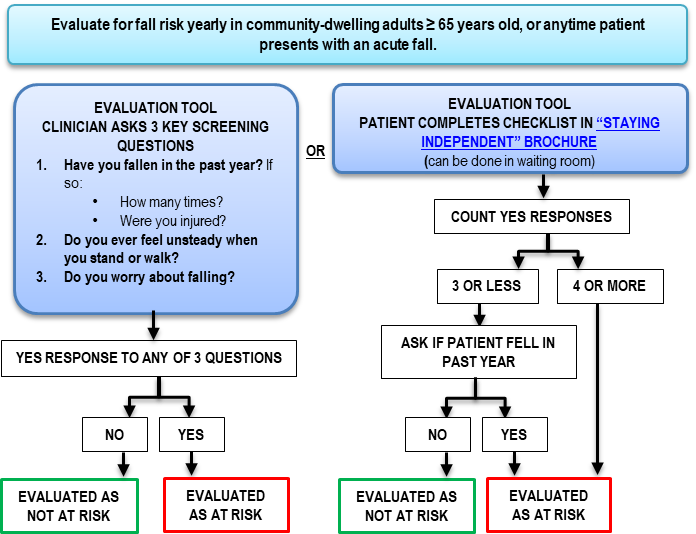What Does Dementia Fall Risk Mean?
Table of ContentsSome Known Factual Statements About Dementia Fall Risk Our Dementia Fall Risk StatementsThe Ultimate Guide To Dementia Fall RiskDementia Fall Risk Can Be Fun For AnyoneDementia Fall Risk - Truths
You might be nervous because you have actually had an autumn before or due to the fact that you've observed you're starting to really feel unstable on your feet. You may have discovered modifications to your health and wellness, or simply seem like you're reducing down a little. Whatever the reason, it isn't unusual to come to be mindful and shed confidence, and this can stop you doing things you utilized to do and make you really feel much more isolated.If you've had a loss or you've started to feel unsteady, tell your doctor also if you really feel great or else. Your medical professional can inspect your balance and the way you stroll to see if improvements can be made. They might be able to refer you for a falls threat analysis or to the drops prevention solution.
This info can be acquired through meetings with the person, their caregivers, and a testimonial of their clinical documents. Begin by asking the private about their background of falls, consisting of the frequency and situations of any current falls. Dementia Fall Risk. Ask about any type of flexibility issues they may experience, such as unstable or trouble strolling
Conduct a comprehensive review of the person's medications, paying certain interest to those known to raise the danger of drops, such as sedatives or medicines that lower high blood pressure. Identify if they are taking numerous medications or if there have actually been recent adjustments in their medicine routine. Assess the person's home environment for possible risks that can enhance the threat of drops, such as inadequate lighting, loosened carpets, or lack of grab bars in the washroom.
Some Known Factual Statements About Dementia Fall Risk
Overview the individual with the loss threat evaluation type, describing each inquiry and videotaping their actions precisely. Determine the total risk score based on the feedbacks given in the evaluation form.
This strategy might include exercise programs to boost stamina and balance, medication changes, home alterations, and recommendations to other specialists as required. Regularly keep track of the individual's progression and reassess their danger of falls as required. Change the treatment plan based upon modifications in their health status or home setting. Supply ongoing education and learning and support to advertise safety and security and minimize the risk of drops in their daily living tasks.
Numerous studies have revealed that physical treatment can help to lower the risk of falling in adults ages 65 and older. In a brand-new research (that took a look at drops threat in women ages 80 and older), researchers determined the financial effect of selecting physical treatment to stop falls, and they discovered that doing so saves $2,144, including all the surprise expenses of your time, discomfort, look here missed out on life events, and the dollars paid for services.
The Single Strategy To Use For Dementia Fall Risk
Analyzing your balance, stamina, and walking capacity. A home security evaluation. Based on the evaluation results, your physical specialist will certainly create a plan that is customized to your certain needs.
Older adults that have problem strolling and speaking at the same time go to a greater danger of falling. Dementia Fall Risk. To assist enhance your safety and security throughout everyday activities, your physiotherapist may make a training program that will test you to keep standing and walking while you do another job. Examples consist of walking or standing while counting in reverse, having a discussion, or lugging a bag of grocery stores
Your physiotherapist also can recognize which activities you need to prevent to remain safe. Community-based drops avoidance programs help individuals to: Decrease their anxiety of falling. Establish goals for enhancing their physical task. Make their homes much safer. Work out more to enhance their stamina and balance. These programs frequently are led by volunteer instructors.
The Only Guide to Dementia Fall Risk

Measles, or rubeola, is a highly infectious, intense viral infectious illness created by the measles virus. Some people think about measles as simply a breakout and fever that removes up in a couple of days; nonetheless, measles can trigger significant health difficulties, especially in kids younger than 5-years-old. The very best security versus measles is the measles, mumps, and rubella (MMR) vaccination.
Falls are a common cause of injury among older adults. According to the CDC, in one year alone, fall-related injuries added to over $50 billion in clinical prices (Dementia Fall Risk). In medical facility settings, older adults are at specifically high risk of falls since their decreased wheelchair from being constrained to an area or bed.
Excitement About Dementia Fall Risk

She has a case history of seizure problem and hypertension. She is receiving an IV infusion and taking Gabapentin and Lasix. She has no history of Resources drops, her gait is consistent, and she nullifies with no concerns. The previous nurse states that she calls for help to the restroom when she needs to go.
Instances of common news loss interventions/measures include: Ensuring a client's vital things are within reach. Past comprehending just how to use the Johns Hopkins Autumn Threat Assessment Tool, it's crucial that centers integrate its usage right into an extra extensive autumn avoidance plan.